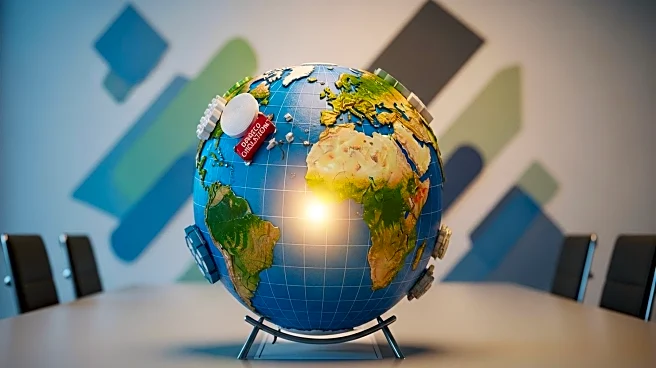What is the story about?
What's Happening?
The UN Plastics Treaty negotiations have faced significant challenges, particularly regarding the exclusion of upstream measures. During the third negotiating session in Nairobi, Kenya, countries compromised to exclude key extraction or production reduction measures in the draft treaty. This compromise is seen as a missed opportunity to comprehensively address the root causes of plastic pollution, which include fossil fuel and plastic production. The fourth session in Ottawa, Canada, saw increased acknowledgment of the harmful effects of plastics, but industry representatives were present despite calls for conflict of interest policies.
Why It's Important?
The exclusion of upstream measures in the UN Plastics Treaty negotiations highlights the difficulty in addressing the root causes of plastic pollution. Without measures to limit plastic production, the treaty may fall short of effectively tackling the issue. The presence of industry representatives at the negotiations raises concerns about potential conflicts of interest and the influence of the fossil fuel and petrochemical industries. A strong treaty is crucial for addressing the plastic pollution crisis and supporting a sustainable circular economy.
What's Next?
The final planned session, INC-5, is set to take place in Busan, Republic of Korea, beginning in late November 2024. This session will be a critical moment to deliver a strong global plastic treaty. Countries and stakeholders will need to address the challenges posed by the exclusion of upstream measures and work towards a comprehensive agreement.















